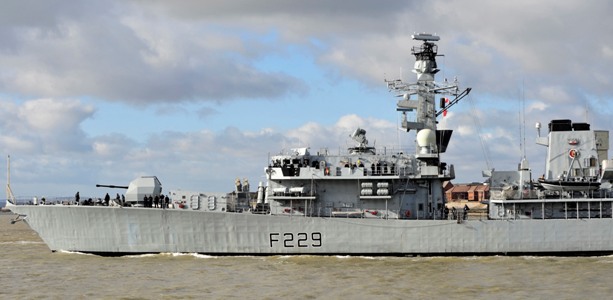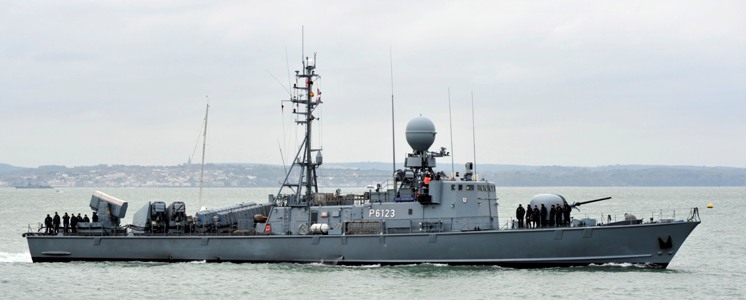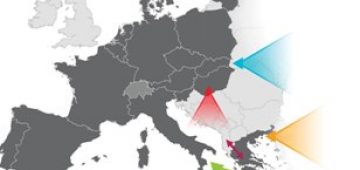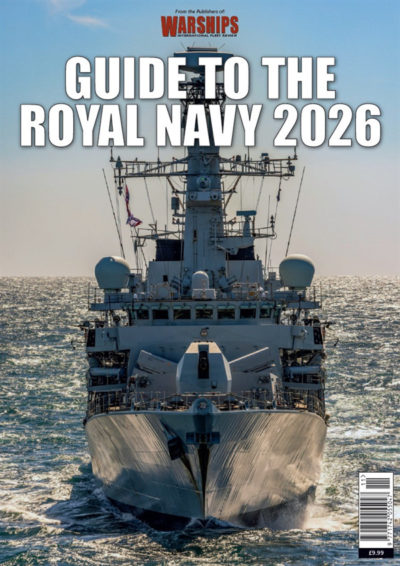Odin’s Eye
(From the June 2015 edition)



NATO is these days being referred to derisively in some quarters as No Action Talk Only. For who really believes that any of its European member nations would actually go to war in order to stop a Crimea-style move against the Baltic States by Russia?



The mindset to face down Russia militarily is just not there in too many European capitals, while military muscle has wasted away. Europe shows no sign of changing tack from continuing to reap the so-called Peace Dividend first harvested by slashing defence budgets in the early 1990s.



Look at the UK, with massive social welfare bills to pay – 25 per cent of all tax revenues goes to Welfare – and there are also solid commitments to sending billions of pounds of taxpayers’ money to foreign countries, some of which are allegedly riven with corruption.



It takes a strange kind of mentality to ring-fence overseas aid while neglecting national defence in the face of a rising threat off British shores. Yet the UK refuses to guarantee the required minimum two per cent proportion of GDP spend on its military required of NATO members. It’s worth stressing that’s not necessarily what the UK needs to spend to properly defend itself. That’s the minimum needed to be a responsible NATO member.



Europe as a whole, so it seems, does not believe in hard power defence at a time when the rest of the world has moved on from the old, soft thinking of the immediate post-Cold War era.



Europe has lost its military lead. Where it does use what military power it has left then it arguably creates more chaos and deaths than it prevents. The Libyan campaign of 2011, for example, replaced the odious and cruel Gaddafi regime with armed anarchy that has spawned a direct Islamic State threat to Europe and opened the floodgates for callous people traffickers to prey on migrants.



With hundreds of people dying in the Mediterranean in sight of European shores, Europe’s response was initially slow and ineffectual, failing to rescue the migrants or stamp out the people trafficking networks. Even now, its measures are a sticking plaster not a cure.



The Europeans also fell short in their response to the Yemen crisis, where non-European navies led the effort to evacuate Europe’s civilians out of harm’s way. It showed how much non-Europe’s naval power, reach and capability has grown while Europe’s has withered.



In the UK, the very basis of the nation’s strategic defence is at risk. Some political parties vied for votes in the General Election by offering to get rid of the sea-based deterrent force (or at least not renew it). Over a period of some decades Trident’s renewal will cost the UK £100 billion. That’s less than a single year’s spending on health, only ten billion more than a single year’s spending on education.



For clarity, figures for UK government spending in 2015 are: £149.7 billion on Pensions, £133 billion on National Health care, £90 billion on State Education, £54.8 billion on Welfare, £11.3 billion devoted on Transport. The UK is spending £32.8 billion on ‘military defence’. Even £9 billion on foreign economic aid is included under the ‘Defence spending’ category. Presumably this is to boost it, so that it looks like the UK is living up to its NATO required two per cent minimum of GDP?



Or is it just a ploy to pretend overseas aid can substitute for properly funding the armed forces? That’s right: By literally giving away taxpayers’ money rather than investing it in hardware, the defence industry, the infrastructure that supports the military and the thousands of jobs that brings. Meanwhile, whole UK military capabilities are discarded and thousands of servicemen and women – plus civilian employees – are made redundant.



There was no in-depth serious debate on Defence in the recent General Election by any of the parties, at least not one that reflected the reality of a world the House of Commons Defence Committee recently described as ‘more dangerous and unstable than at any time since the end of the Cold War.’



The committee’s recent report, called ‘Re-thinking defence to meet new threats’, also pointed out: ‘For the first time in twenty years, an advanced military state has challenged the borders of European nations, and the security challenges in the Middle East, Africa, and South Asia have increased dramatically in scale and complexity. Russia has annexed Crimea, and Russian-backed separatists have taken much of Eastern Ukraine.’



Despite all this, no major political party in the UK guaranteed the aforementioned two per cent of GDP for Defence. It would actually mean an increase in spending in years to come (because more cuts are feared to be on the way this autumn).



During the election the big UK political parties preferred to make multiple promises of tax freezes, extra money for health, funds to enable people to buy their own homes, more money for childcare. They are all easy vote grabbers. It’s all about good news, not bad for today’s British politicians (even though they know many people think they are making false promises).



They all failed to say anything substantial about the first duty of any British government, which is defence of the realm. There was no proper articulation of foreign policy and how the armed forces would meet their objectives (or not be able to).



Britain, like the rest of Europe, seems careless with its defence, having discarded too many capabilities and forces. Today the UK stands out in Europe as the only major state that has no sovereign anti-ballistic missile defence system. This is despite being the only country in Europe to suffer thousands of casualties from ballistic missile attack in WW2. Hard lessons, it seems, are easily forgotten by the British.



Today President Putin and other leaders and non-state players of a similar hard power inclination – in command of burgeoning military capabilities while nurturing old-fashioned territorial and/or ideological ambitions – are not shy of trying power play blackmail against countries that displease them.



The swagger with which the Russian leadership boasts of using its nukes is truly disturbing. It has warned the West not to mess with Russia over Ukraine ‘or else’. Russia has also cautioned Denmark that its warships might one day be nuked (if their nation has the temerity to join a sea-based ballistic missile defence shield). A senior government minister in Russia has even boasted that his country’s tanks can go wherever they like, as they ‘do not need visas.’



It is a sure sign of a world-view very far removed from the head in the sand approach popular with most of Western Europe’s political leadership. Faced with a Europe that has discarded much of its conventional military forces – and shows no sign of matching Russia’s expansive rearmament – Putin has his sights set on trouble in the Baltic and ensuring Russia dominates the Arctic to reap the rewards of its natural riches.



It is only the possession of a sea-based nuclear deterrent force by both Britain and France that makes him calculate that he cannot push Europe too far. It doesn’t stop Russia nibbling around the edges and waging a war of nerves using provocative conventional forces – and hybrid warfare – but it does stop overt moves to snatch back some of the lost Soviet Empire.



The difficulty lies in convincing Putin that Europe is serious enough about potentially using its residual conventional forces at sea, in the air and on land. Halting defence cuts would be one way of doing that, while increasing investment in key areas such as sea-based Ballistic Missile Defence (BMD) would be another.

Pictured Top:

The Duke Class (Type 23) frigate HMS Lancaster, which is one of a dwindling band of major surface combatants in the British fleet, struggling to cope with a wide array of global missions.

Photo: Tony Holland/AJAX.






The Germany Navy Gepard missile-armed Fast Attack Craft (FAC) FGS Hermelin, a symbol of Europe’s failure to replace many capabilities. Hermelin is expected to be retired from service in 2020, after 37 years of service.











Comments
Sorry, comments are closed for this item